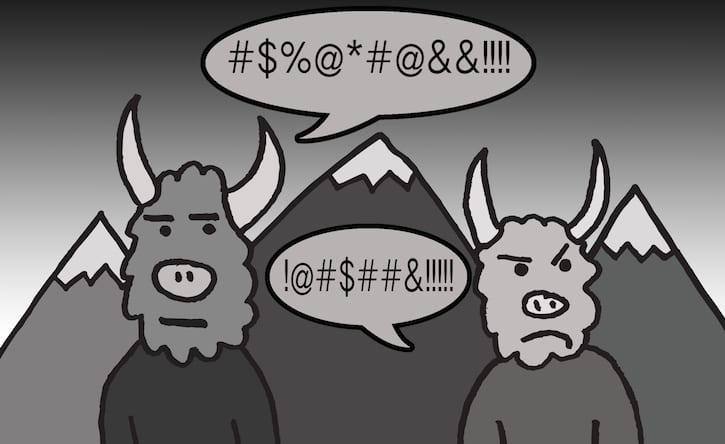It is not an unusual thing to hear people talk about the United States, or the West as a whole as the breeding ground for individualism, self-satisfaction and contempt. And yet, that assumption begins to crumble away when one sits in front of the constant curiousness and the ever-talkative character of many of these so-called “individualists.” Still, the ever-growing influence of social media has begun to take its toll on the lives of many Americans, in particular those on anonymous Web sites and applications.
After Ask.fm became filled with teenage bullies, 4chan.org became the lair for the Internet’s funny business and Whisper.sh revealed the perverts luring girls to give them their nude photos, a new notification blipped up surrounding Yik Yak, an anonymous Twitter-like app based on geography. On Yik Yak, individuals can anonymously post short messages, which can either be up-voted or down-voted by others nearby.
Margaret Crouch, a professor of philosophy at Eastern Michigan University, was confounded by the dozens of patronizing posts about her on the app that contained sexually explicit language and imagery. Even more distressing is the fact that she could not sue anyone for the commiting the act due to the anonymous nature of the app. And this is not the only case of this nature to emerge recently.
According to the New York Times, since the app was introduced a little more than a year ago, it has been used to issue threats of mass violence on more than a dozen college campuses, including the University of North Carolina, Michigan State University and Penn State. Racist, homophobic and misogynist “yaks” have generated controversy at many more, among them Clemson, Emory, Colgate, the University of Texas and even here at St. Olaf.
Even though the app has generated meaningful discussion in the fields of politics and race, particularly during the ongoing crisis in Ferguson, there is the looming hazard of its use as a tool of abuse and bullying. Now advertised as the “Wild West of anonymous social apps,” Yik Yak sits on the borderline between connecting people and bringing the worst out of American college students. The phenomenon is unlike anything one has seen since the emergence of the cyberbullying culture between the late 1990s and early 2000s.
One could not help but look on with awe as the rise of social media brought enormous changes to the lives of the American people, who in general went from being some of the most talkative and friendly people in the world to among the most grotesque and inhumane. Perverted cowards and hypocrites whose inability to speak face-to-face with others were urged to retreat to the sanctity of an anonymous Web site, where they still release their animalistic desires and tear people apart virtually.
“We thought, ‘Why can’t we level the playing field and connect everyone?'” said Tyler Droll, a graduate of Furman University, S.C. who created the app in late 2013 with Brooks Buffington, a fellow fraternity brother. With Yik Yak, they say, they hoped to create a social media network, one where users didn’t need a large number of followers or friends to have their posts read widely.
Perhaps in this new age of progress that enables us to connect with one another without regard to distance and time, we simply started to forget that one could not connect completely without revealing their heart to the person that is standing in front of them.
If in other parts of the world social media took away people’s ability to speak face-to-face, it ought not to have stripped Americans of their talkative and curious nature. After all, we may be approaching a time when the standards of being human will be so low as to change the definition completely.
Sam Pattinasarane ’18 [email protected] is from Jakarta, Indonesia. He majors in political science and Asian studies.
Graphic Credit: ETHAN BOOTE/MANITOU MESSENGER



